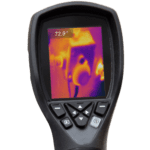Inspecting Your Home. Protecting Your Future.
We are your Top Choice Home Inspector – with over a decade of experience and the best training in the industry.
3 Reasons to Make Us Your Top Choice:

Advanced Technology
We utilize state-of-the-art tools like Sewer Scopes, Infrared Cameras and Drones for advanced inspections.

Detailed Reports
Easy-to-read, modern, timely Spectora reports so you can know what issues to address immediately.

Buy-Back Guarantee
Our home inspections also include InterNACHI's Buy Your Home Back Guarantee.
Top Northeast Ohio Home Inspections
I am a Licensed and Board Certified Master Home Inspector and have spent over a decade in the home inspection industry serving Akron, Canton, Cleveland, and surrounding NE Ohio areas. My years of experience have always helped me in inspecting homes, but I don’t rely completely on that experience. Buildings and standards change all the time, so I work hard to be well-trained and up-to-date on the latest industry standards. This is the kind of expertise that I bring to every home inspection that I perform.
Professional and Licensed
- Certified Master Inspector
- Ohio Home Inspector license #OHI.2019004115
- Ohio Radon Tester license #RT1434
- Ohio WDI license #106291
- Ohio Registered Private Well Inspector #3884
- Sewer Scope Certified
- IAC2 Certified Mold Inspector
- Infrared Certified
- FAA Certified Drone Pilot
- Commercial Property Inspector CCPIA-000689
Inspecting with Confidence
Positive Reviews
- Jon Poda1/25/2026We recently used Top Choice to complete our home inspection and had a great experience with Todd. He was extremely knowledgeable, easy to work with, thorough, professional, and patient in explaining his findings and answering all of our questions. We highly recommend Todd and his team to anyone in need of a home inspection. Thank you!!read moreread less
- Lorraine Garlington5/14/2025Great Master Inspector! You don't realize how much actually goes into the inspection process until you've had Todd Hoffmeyer do your inspection. He was very detailed in his report and saw things that I wasn't even thinking of. He also details how to rectify issues and their level of importance. If you want a thorough report, I recommend Top Choice Home Inspections, LLC.read moreread less
- Sue Gorgonzola4/30/2025Todd and his team are very thorough, easy to work with and efficient. Top Choice is the only home inspection team I will use and recommend to everyone I know. I used Top Choice about ten years ago, loved the thoroughness and the report received helped me make informed decisions. Highly recommend!read moreread lessAlex Hoce4/27/2025Todd and crew were courteous, thorough, and respectful. They explained what they were doing, finding, and how the code applied. The detailed report and videos that were delivered less than 24 hours after his inspection helped us understand the good, bad, and ugly of the home buying process. We highly recommend Todd and his group for your home inspection needs.read moreread less
Frequently Asked Questions
A home inspection includes checking for any structural issues such as foundation cracks, roof leaks, plumbing issues, electrical wiring, heating/cooling systems, insulation, windows, doors, chimneys, etc. Depending on how big the property is, a home inspection typically takes 2-3 hours.
Ensure all inspection points are free from clutter, including any closets that might lead to a crawlspace or attic, and clearing some space around your home’s perimeter. It’s also important to check the functionality of all built-in appliances, electric, and gas. If you don’t plan to attend the inspection, make sure your inspector has access to the home, and all pets are properly contained or moved.
A home doesn’t pass or fail an inspection. Instead, a home inspection is a thorough audit of your home’s components. In most cases, there will be concerns marked on your home inspection report, but these are strictly informative.
While you can legally skip a home inspection in many cases, doing so could mean you may end up buying a home that has major issues that need to be fixed.
While a home inspector may recommend some minor repairs, they are not qualified to make major repairs. He or she can provide information about what needs to be repaired — and it might be helpful to know that information — but the decision to actually do the work lies solely with the homeowner. Not only does this give you the freedom to choose your contractors, but it also helps prevent a conflict of interest.
A home inspection can affect appraisals for two reasons: 1) The inspector may find something wrong with the property that would lower the value of the home, 2) The inspector may find things that need repair which could increase the value of the home. If the inspection finds issues that require repairs, then the seller has to decide whether they want to fix them themselves, or hire someone else to do it. If the buyer wants to purchase the home, he/she must be willing to pay for those repairs.
